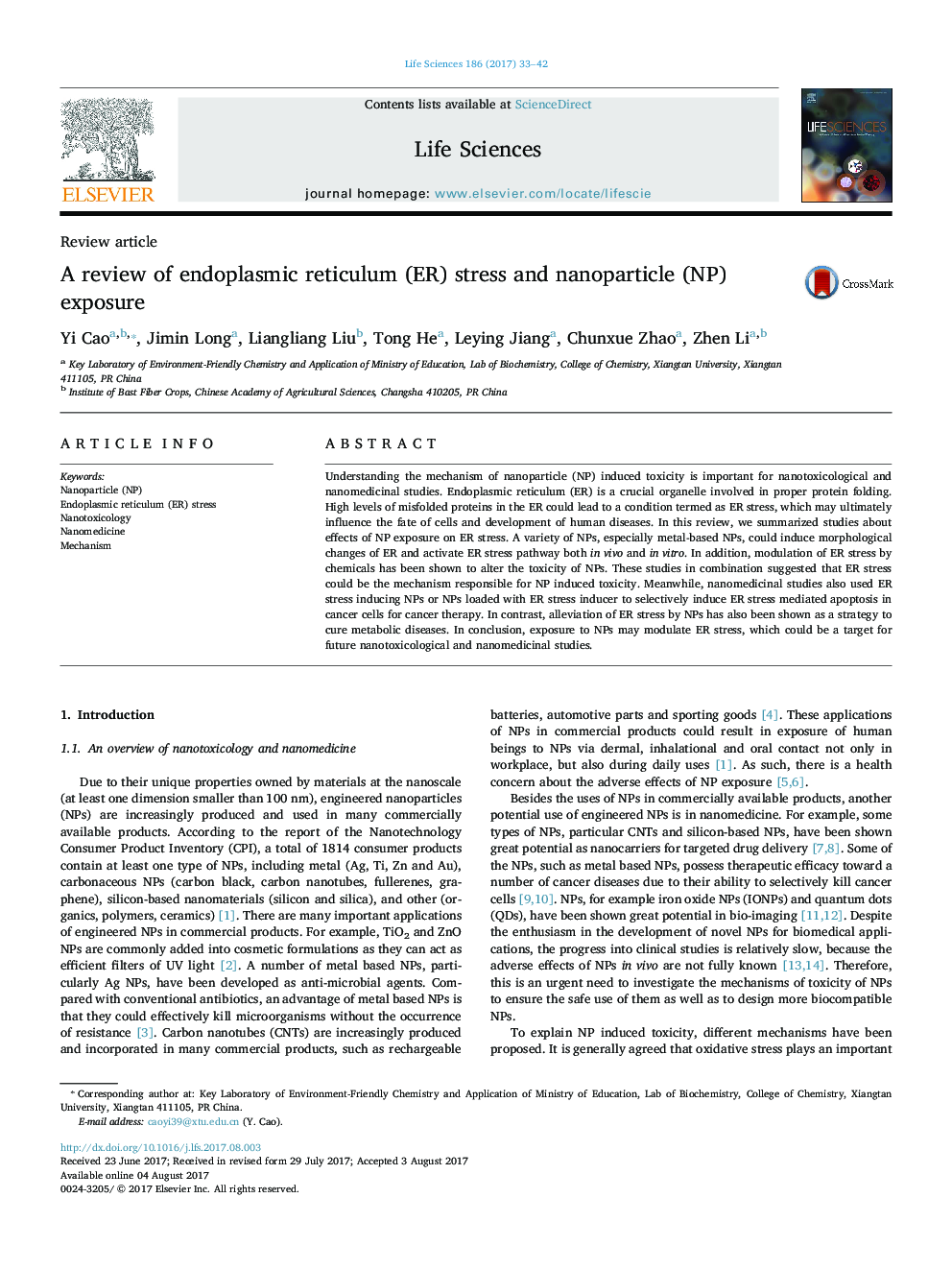| Article ID | Journal | Published Year | Pages | File Type |
|---|---|---|---|---|
| 5556820 | Life Sciences | 2017 | 10 Pages |
Understanding the mechanism of nanoparticle (NP) induced toxicity is important for nanotoxicological and nanomedicinal studies. Endoplasmic reticulum (ER) is a crucial organelle involved in proper protein folding. High levels of misfolded proteins in the ER could lead to a condition termed as ER stress, which may ultimately influence the fate of cells and development of human diseases. In this review, we summarized studies about effects of NP exposure on ER stress. A variety of NPs, especially metal-based NPs, could induce morphological changes of ER and activate ER stress pathway both in vivo and in vitro. In addition, modulation of ER stress by chemicals has been shown to alter the toxicity of NPs. These studies in combination suggested that ER stress could be the mechanism responsible for NP induced toxicity. Meanwhile, nanomedicinal studies also used ER stress inducing NPs or NPs loaded with ER stress inducer to selectively induce ER stress mediated apoptosis in cancer cells for cancer therapy. In contrast, alleviation of ER stress by NPs has also been shown as a strategy to cure metabolic diseases. In conclusion, exposure to NPs may modulate ER stress, which could be a target for future nanotoxicological and nanomedicinal studies.
Graphical abstractExposure to nanoparticles (NPs) may modulate the three signaling pathways in ER stress and regulate the cell survival or death.Download high-res image (79KB)Download full-size image
